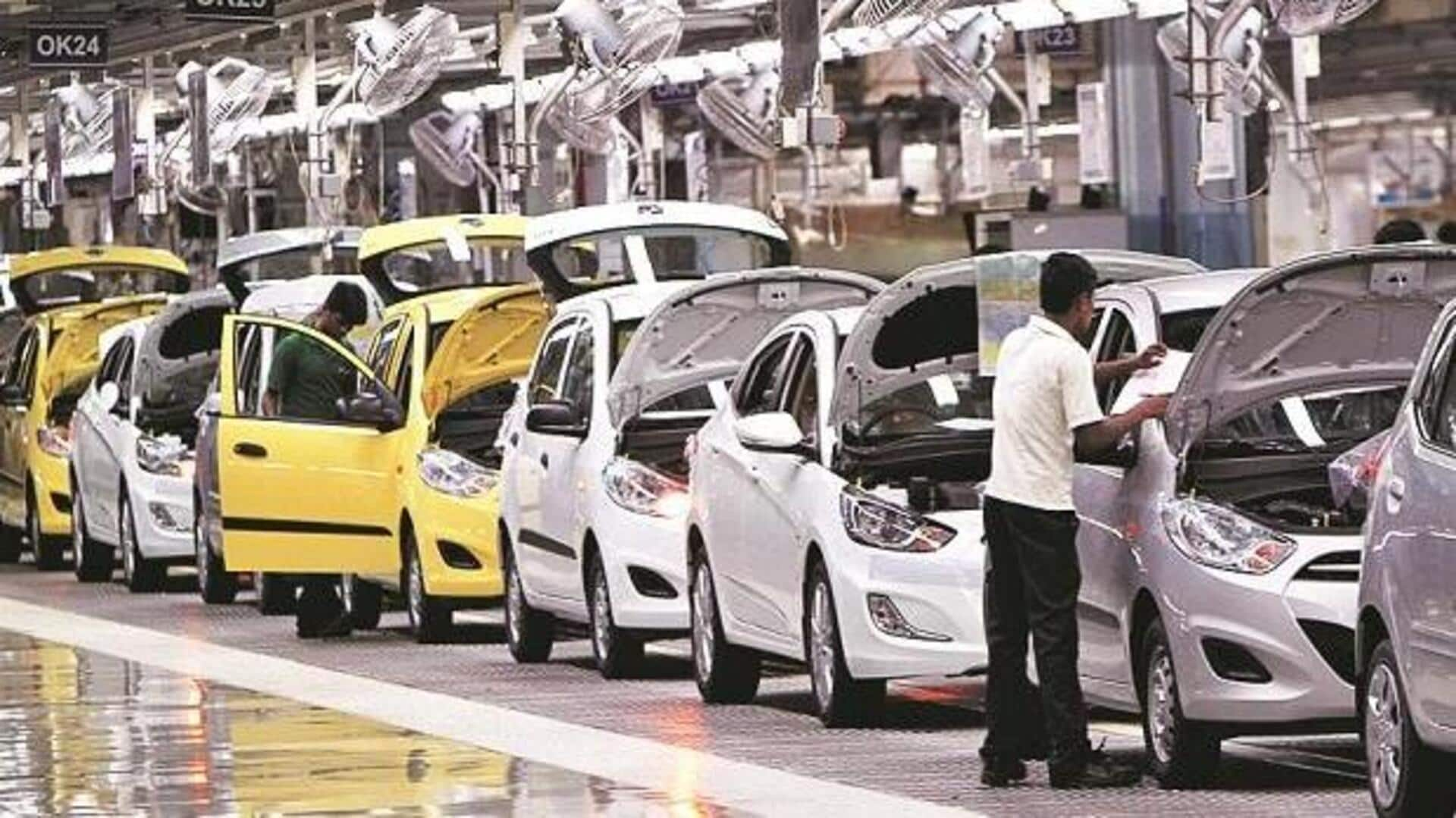
India's car market may face a major slowdown in FY26
What's the story
The Indian passenger vehicle industry is set to witness a major slowdown in FY2026, according to ICRA. The agency has projected a modest wholesale volume growth of just 1-4%. This is a far cry from the double-digit growth rates seen during the post-pandemic recovery years of FY2022-23 and last year's expansion. The conservative outlook comes after the industry contracted by 1.1% in April-July this year, highlighting ongoing challenges in maintaining momentum from previous fiscal years.
Market transition
FY2022-23 saw double-digit growth across the board
The projected 1-4% growth marks a stark departure from the industry's recent performance. In FY2022 and FY2023, the passenger vehicle segment saw growth rates of 23% and 27%, respectively. This was fueled by consumers rushing to buy vehicles after pandemic-related disruptions. Even FY2024 saw healthy growth of around 8-9%, thanks to new model launches and improved semiconductor availability.
Market challenges
Rising inventory levels at dealerships
ICRA's analysis highlights rising inventory levels at dealerships, which stood at 55 days by the end of July 2025. This indicates that while manufacturers are ramping up production in anticipation of festive season demand, retail absorption isn't keeping pace. The situation is further complicated by a year-over-year (YoY) decline in retail sales by 0.8% in July despite a sequential improvement of 10.4%.
Market resilience
Utility vehicles and SUVs continue to dominate
The SUV and utility vehicle segment, which commands a 65-66% market share, continues to defy the broader slowdown. This resilience can be attributed to changing consumer preferences toward larger vehicles with better road presence, features, and perceived value. However, even this segment's growth is moderating compared to the explosive annual growth rates of 40-50% seen in FY2022-23.
Market struggles
Small car segment continues to see decline
The small car segment, a traditional volume driver for companies like Maruti Suzuki, continues to bear the brunt of rising input costs and changing consumer preferences. This segment has witnessed consistent volume declines since FY2023, with no immediate recovery in sight. The sedan segment's decline also accelerates, now accounting for less than 10% of total passenger vehicle sales compared to over 25% a decade ago.
Economic factors
Other factors affecting demand
Rising interest rates through FY2025 have increased vehicle financing costs, while persistent inflation has affected discretionary spending. Urban consumption, especially in metros, is showing signs of moderation after three years of strong growth. The industry is also awaiting clarity on GST rate rationalization with expectations that cuts could stimulate demand. However, the timing remains uncertain, creating a wait-and-watch scenario among potential buyers.